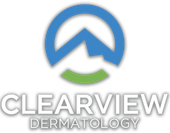Insurance and Dermatology: What Patients Need to Know Before Their First Visit
Let's be honest—figuring out insurance coverage can feel like trying to solve a puzzle while blindfolded. And when it comes to dermatology, the confusion gets even worse. Do dermatologists accept insurance? What's covered and what isn't? Will you need a referral? How much will you actually pay out of pocket?
If you're scratching your head (pun intended) about dermatology insurance coverage, you're not alone. The good news? Once you understand the basics, navigating dermatology insurance becomes much easier. Let's break it down so you can focus on what really matters—getting the skin care you need.
Key Points:
- Most dermatologists do accept insurance, including major providers like Aetna, Anthem, and Humana
- Medical dermatology services (treating skin conditions, skin cancer screenings) are typically covered by insurance
- Cosmetic procedures (Botox for wrinkles, laser hair removal) are usually not covered by insurance plans
- Referrals may be required depending on your specific insurance plan and whether your dermatologist is in-network
- Copays, deductibles, and coinsurance vary significantly between insurance plans and providers
- Pre-authorization may be needed for certain treatments, medications, or procedures
- Always verify coverage before your appointment to avoid unexpected costs
Do Dermatologists Accept Insurance? The Short Answer
Yes, most
dermatologists do accept insurance! However, the real question isn't whether they accept insurance—it's whether they accept
your insurance and whether the services you need are covered.
Think of it like this: just because a restaurant accepts credit cards doesn't mean they accept every type of credit card. Similarly, dermatologists may accept some insurance plans but not others, and your coverage will depend on your specific plan details.
Understanding Medical vs. Cosmetic Dermatology Coverage
This is where things get interesting (and sometimes frustrating). Insurance companies generally divide dermatology into two categories:
Medical Dermatology (Usually Covered)
- Skin cancer screenings and biopsies
- Treatment of skin conditions like eczema, psoriasis, acne
- Rashes, infections, and inflammatory conditions
- Suspicious moles or lesions
- Skin conditions affecting quality of life
Cosmetic Dermatology (Usually NOT Covered)
- Botox for wrinkles (unless for medical conditions like excessive sweating)
- Laser hair removal
- Chemical peels for anti-aging
- Cosmetic fillers
- Spider vein treatments
- Laser treatments for sun damage
The tricky part? Sometimes the same treatment can be considered medical or cosmetic depending on the reason for treatment. For example, Botox for migraines might be covered, while Botox for forehead wrinkles definitely won't be.
Major Insurance Providers: What You Need to Know
Aetna Insurance and Dermatology
Aetna is generally dermatology-friendly and covers most medical dermatology services. Here's what Aetna typically covers:
Covered Services:
- Annual skin cancer screenings
- Treatment of skin conditions and diseases
- Medically necessary biopsies
- Prescription medications for skin conditions
What to Know About Aetna:
- Most plans don't require referrals for dermatology visits
- You'll want to find a dermatologist who takes Aetna in-network for the best rates
- Aetna often covers newer treatments for conditions like psoriasis and eczema
- Pre-authorization may be required for expensive medications or procedures
Anthem Insurance Coverage
Anthem (now Elevance Health) has extensive dermatology coverage, especially for preventive care:
Covered Services:
- Preventive skin cancer screenings (often at 100% coverage)
- Treatment of medical skin conditions
- Medically necessary surgical procedures
- Prescription dermatology medications
Anthem Specifics:
- Many Anthem plans cover annual skin checks without requiring you to meet your deductible first
- Referrals are typically not required for dermatology visits
- Finding a dermatologist who takes Anthem insurance is usually straightforward
- Good coverage for biologic medications used to treat psoriasis and other conditions
Humana Insurance and Dermatologists
Humana offers solid dermatology coverage, particularly for Medicare Advantage members:
Covered Services:
- Medical dermatology consultations and treatments
- Skin cancer screenings and removal procedures
- Treatment of chronic skin conditions
- Medically necessary dermatological surgeries
Humana Details:
- Referrals may or may not be required depending on your specific plan
- Medicare Advantage plans often have excellent dermatology coverage
- Pre-authorization requirements vary by plan and treatment
- Good network of dermatologists who accept Humana insurance
What About Copays, Deductibles, and Out-of-Pocket Costs?
Here's where your individual plan details really matter:
Typical Cost Structure
- Copays: Usually $20-$50 for specialist visits (dermatology counts as a specialty)
- Deductibles: You may need to meet your annual deductible before coverage kicks in
- Coinsurance: After meeting your deductible, you might pay 10-20% of the remaining costs
Example Scenarios
Scenario 1: You have Aetna with a $30 specialist copay and you're seeing the dermatologist for acne treatment. You'll likely pay just the $30 copay.
Scenario 2: You have Anthem with a $2,000 deductible and need a skin biopsy early in the year. You might pay the full cost until you meet your deductible.
Scenario 3: You have Humana Medicare Advantage and need an annual skin check. This might be covered at 100% as preventive care.
Finding Dermatologists Who Take Your Insurance
Step 1: Check Your Insurance Website
Most insurance companies have online provider directories where you can search for "dermatologists who take Aetna" or whatever your insurance provider is.
Step 2: Call the Dermatology Office Directly
This is often the most reliable method. Call and ask:
- "Do you accept [your insurance]?"
- "Are you in-network with [your insurance plan]?"
- "What will my estimated out-of-pocket cost be?"
Step 3: Verify Before Your Appointment
Insurance networks change frequently, so it's worth double-checking before your visit.
Questions to Ask Before Your First Dermatology Visit
Insurance-Related Questions
- "What will my copay/coinsurance be for this visit?"
- "If you recommend a procedure, will it require pre-authorization?"
- "Do you accept my insurance for prescription medications you might prescribe?"
- "What happens if we discover something that needs immediate treatment?"
Treatment-Related Questions
- "What's the difference in cost between in-network and out-of-network care?"
- "Are there generic alternatives for any medications you might prescribe?"
- "Which treatments are considered medical vs. cosmetic?"
Pre-Authorization: What It Is and Why It Matters
Pre-authorization (or prior authorization) is when your insurance company wants to approve a treatment before you receive it. This commonly happens with:
- Expensive medications (like biologics for psoriasis)
- Surgical procedures
- Certain diagnostic tests
- Newer or specialized treatments
The Process:
- Your dermatologist's office submits a request to your insurance
- Insurance reviews the medical necessity
- They approve, deny, or request more information
- You receive notification of the decision
Timeline: This can take anywhere from 24 hours to several weeks, so plan accordingly.
Clearview Dermatology and Insurance: What You Need to Know
At Clearview Dermatology, Dr. Joe Overman and our team understand that insurance can be confusing. That's why we work with most major insurance providers, including Aetna, Anthem, and Humana, to make quality dermatological care accessible.
Our Insurance Promise
- Transparent pricing: We'll verify your benefits before your appointment
- Insurance expertise: Our billing team knows dermatology insurance inside and out
- Multiple payment options: We work with you to make care affordable
- Pre-authorization assistance: We handle the paperwork when prior authorization is needed
What We Accept
We work with most major insurance plans, including:
- Aetna (all major plan types)
- Anthem/Elevance Health
- Humana (including Medicare Advantage)
- Medicare and Medicaid
- And many other regional and national providers
Common Insurance Myths Debunked
Myth: "Insurance never covers dermatology"
Truth: Medical dermatology is well-covered by most insurance plans, especially preventive care like skin cancer screenings.
Myth: "I need a referral to see a dermatologist"
Truth: Many insurance plans don't require referrals for dermatology, though some HMO plans might.
Myth: "All dermatology treatments are cosmetic"
Truth: Most dermatology visits are for medical conditions that are covered by insurance.
Myth: "Generic medications work just as well as brand names"
Truth: While often true, some skin conditions respond better to specific formulations. Your dermatologist can help determine what's best for you.
Tips for Maximizing Your Insurance Benefits
Before Your Visit
- Verify your benefits online or by calling your insurance company
- Confirm the dermatologist is in-network
- Ask about your specific copay and deductible status
- Bring your insurance card and ID
During Your Visit
- Be honest about what's medical vs. cosmetic concern
- Ask about generic alternatives for prescribed medications
- Understand what treatments require pre-authorization
After Your Visit
- Keep all documentation from your visit
- Follow up on any pre-authorization requests
- Review your explanation of benefits (EOB) when it arrives
When Insurance Doesn't Cover What You Need
Sometimes you might want or need treatments that aren't covered by insurance. Here are your options:
Payment Plans
Many dermatology offices, including Clearview Dermatology, offer payment plans for cosmetic procedures or treatments not covered by insurance.
Health Savings Accounts (HSAs) or Flexible Spending Accounts (FSAs)
These can often be used for medical dermatology treatments, even if you have to pay out-of-pocket initially.
Secondary Insurance
Some people have secondary insurance that might cover what their primary insurance doesn't.
Red Flags: When to Question Your Coverage
Be Cautious If
- The office won't verify your insurance before your appointment
- They ask for full payment upfront without checking your benefits
- They can't clearly explain what's covered vs. what's not
- They pressure you into treatments without discussing insurance implications
Making the Most of Your Dermatology Insurance
The key to successfully navigating dermatology insurance is preparation and communication. Don't be afraid to ask questions—both to your insurance company and to your dermatologist's office.
Remember, the goal is to get the skin care you need without breaking the bank. With a little planning and the right information, you can make your insurance work for you.
Ready to Use Your Insurance for Better Skin Health?
Don't let insurance confusion keep you from getting the dermatological care you need. At Clearview Dermatology, we're here to help you navigate your coverage and get the treatment that's right for you.
Contact us today to verify your insurance coverage and schedule your appointment:
- Candelas Location: 720-797-9184 | 14789 W. 87th Parkway, Arvada, CO 80005
- Bergen Park Location: 720-694-8550 | 32135 Castle Court, Ste 202 Evergreen, CO 80439
- Dakota Ridge Location: 720-909-8154 | 13402 W Coal Mine Ave, Ste 360 Littleton, CO 80127
Visit us at www.clearviewdermatology.com to learn more about our services and insurance options.
FAQs About Dermatology Insurance Coverage
Do most dermatologists accept insurance?
Yes, the majority of dermatologists accept insurance for medical dermatology services. However, coverage varies by provider and plan, so it's important to verify that your specific dermatologist accepts your insurance plan.
Does Aetna cover dermatology visits?
Aetna typically covers medical dermatology visits, including skin cancer screenings, treatment of skin conditions, and medically necessary procedures. Cosmetic treatments are generally not covered unless they're medically necessary.
Can I see a dermatologist without a referral?
This depends on your specific insurance plan. Many PPO plans don't require referrals for dermatology visits, while some HMO plans do. Check with your insurance provider to understand your plan's requirements.
What's the difference between in-network and out-of-network dermatologists?
In-network dermatologists have contracts with your insurance company and typically cost less out-of-pocket. Out-of-network providers may result in higher copays, deductibles, or even full payment if your plan doesn't cover out-of-network care.
Are skin cancer screenings covered by insurance?
Yes, most insurance plans cover annual skin cancer screenings as preventive care, often at 100% coverage. This includes plans from Aetna, Anthem, Humana, and most other major providers.
Does insurance cover acne treatment?
Yes, medical treatment for acne is typically covered by insurance, including prescription medications and dermatologist visits. However, cosmetic acne treatments may not be covered.
What dermatology treatments require pre-authorization?
Expensive medications (like biologics), surgical procedures, certain diagnostic tests, and newer treatments often require pre-authorization. Your dermatologist's office will typically handle this process for you.
Can I use my HSA or FSA for dermatology treatments?
Yes, you can typically use HSA or FSA funds for medical dermatology treatments. Some cosmetic treatments may also qualify if they're treating a medical condition.
Does Humana Medicare Advantage cover dermatology?
Yes, Humana Medicare Advantage plans typically offer good dermatology coverage, including preventive skin cancer screenings and treatment of medical skin conditions.
What if my dermatologist recommends a treatment my insurance doesn't cover?
Ask about alternative treatments that might be covered, generic medication options, or payment plans. Your dermatologist can often work with you to find covered alternatives or help with insurance appeals.
FAQs About Clearview Dermatology Insurance
What insurance plans does Clearview Dermatology accept?
We accept most major insurance plans, including Aetna, Anthem, Humana, Medicare, Medicaid, and many other regional and national providers. Call us to verify your specific plan.
Will you verify my insurance benefits before my appointment?
Yes, our team will verify your insurance benefits and let you know your estimated out-of-pocket costs before your visit. We believe in transparent pricing with no surprises.
Do you help with pre-authorization when needed?
Absolutely. Our experienced billing team handles pre-authorization requests for treatments and medications that require prior approval from your insurance company.
What if I don't have insurance?
We offer self-pay options and payment plans to make dermatological care accessible. Contact us to discuss pricing and payment options for uninsured patients.
Can you help me understand what my insurance covers?
Yes, our staff is knowledgeable about dermatology insurance coverage and can help explain what services are typically covered by your plan and what your out-of-pocket costs might be.
Do you accept Medicare?
Yes, we accept Medicare and most Medicare Advantage plans, including those from Humana, Aetna, and other providers.
What happens if my insurance denies coverage for a recommended treatment?
We can help you understand the denial reason and assist with appeals when appropriate. We may also be able to suggest alternative treatments that are covered by your plan.
Do you offer payment plans for treatments not covered by insurance?
Yes, we understand that some treatments may not be covered by insurance, and we offer flexible payment options to help make care accessible and affordable.
Disclaimer: The information provided on this blog is for general informational purposes only and is not intended as, and should not be considered, medical advice. All information, content, and material available on this blog are for general informational purposes only. Readers are advised to consult with a qualified healthcare professional for medical advice, diagnosis, or treatment. The author and the blog disclaim any liability for the decisions you make based on the information provided. Always seek the advice of your physician or other qualified health provider with any questions you may have regarding a medical condition.





